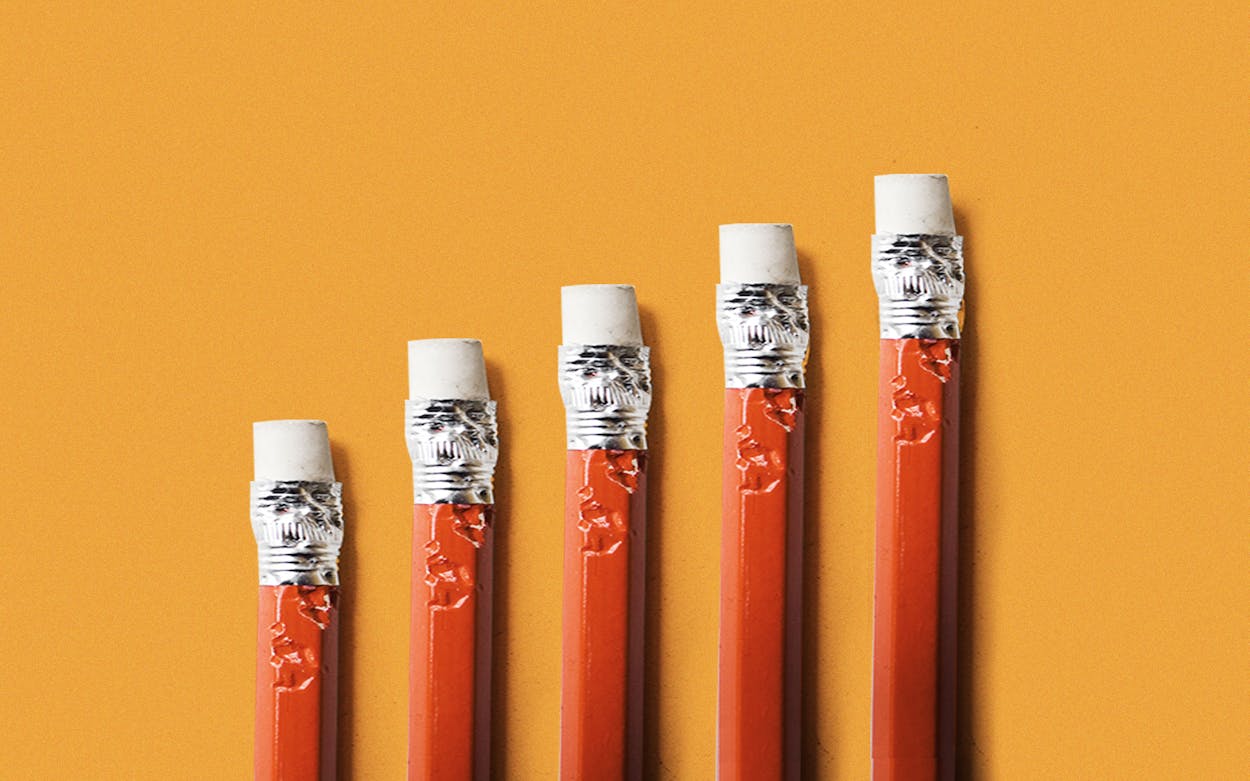You could be forgiven for assuming that masks and the government’s response to COVID-19 are deeply divisive culture-war issues on which Americans—especially in a historically red state like Texas—are starkly and irrevocably split. That’s largely the discourse that one sees on social media and in media coverage. But things aren’t quite so simple, or depressing. A new poll of Texas released Wednesday shows that by overwhelming majorities, Texans approve of mask requirements, believe that the closing of bars has slowed the spread of the coronavirus, and are deeply concerned about containing a disease that they’ve increasingly seen affect their communities.
Perhaps the most striking finding in the Quinnipiac University poll: 65 percent of those surveyed said that COVID-19 is “out of control” in Texas. It’s a view held by people in virtually every part of the state—68 percent of Texans in urban areas, and 59 percent of rural Texans. Though the partisan gap is evident—36 percent of Republicans agree that the coronavirus is out of control, compared with 71 percent of independents and a staggering 95 percent of Democrats—there’s reason to believe that partisanship plays a smaller role when the question is framed in less dire terms. For instance, when asked whether “the spread of the coronavirus in the state is a serious problem at this time,” Texans said yes by a 49-point margin. A majority of Republicans—55 percent—agree, along with 81 percent of independents and 95 percent of Democrats.
This level of concern almost certainly has something to do with the spread of the coronavirus. When asked in early June if they knew anyone who had been diagnosed with COVID-19, only 35 percent of Texans said they did; in the poll released on Wednesday, that number had shot up to 66 percent.
Now that two thirds of Texans know someone with COVID-19, political attitudes have begun to shift, too. Governor Greg Abbott, who’s enjoyed durable and relatively high approval ratings during his six years leading the state, saw a massive swing in how Texans judge his handling of the pandemic. In early June, 56 percent of Texans said they approved of his performance on the coronavirus, versus 32 percent who disapproved. In the poll released Wednesday, his approval rating was underwater—with 48 percent expressing disapproval and 47 percent saying they approved.
Based on the attention that anti-shutdown protests received in the spring, it’s fair to wonder whether Abbott’s slipping approval rating is coming from the right, as well as the left—is he losing ground among those who believe he’s acted with too heavy a hand? The polling doesn’t really bear that out: 52 percent of Texans thought that he moved “too quickly” in easing public safety measures, while only 13 percent of respondents said he acted too slowly in rolling back shutdown orders and reopening businesses. (Notably, 0 percent of Democrats polled hold that conviction.) Abbott seemed to improvise portions of his reopening plans specifically to satisfy a group that represents only a small fraction of even his own party’s voters, though presumably a large percentage of his donor base.
Abbott’s most popular move? The statewide mask mandate, which enjoys an overwhelming 80 percent approval rating. Local control also gets high marks. Though a new statewide order shutting down all nonessential businesses is favored by only 44 percent, a large majority (68 percent) said they believe local leaders should be allowed to order shutdowns. That includes 42 percent of Republicans (who overwhelmingly oppose the idea of a new statewide order). Despite increasingly desperate pleas from some city and county officials, Abbott has said he will not allow localities to reimpose shelter-at-home orders. Abbott’s more narrowly tailored measure to close bars across the state, meanwhile, is regarded as one of his effective decisions; more than three quarters of those surveyed agreed that it has helped slow the spread of the disease.
Texans expressed a deep ambivalence toward school reopenings. Only 36 percent of those polled say it would be safe to bring K–12 students back to school in the fall, while 42 percent maintain that reopening universities and colleges would be safe.
There is, of course, a relatively small core of Texans who don’t seem to believe that the coronavirus is a concern. In the early June poll, 23 percent of those surveyed said they were “not worried” about contracting COVID-19—a number that remains unchanged in late July. Responding to a similar question, 15 percent said they weren’t worried about their friends or family contracting the disease, a figure that has also held steady even as the disease’s spread has worsened throughout the state. (There’s been more movement among those who told Quinnipiac that they “were not too worried” about personally contracting the disease—suggesting that some skeptics are taking the disease more seriously, even as the fringe remains steadfast.)
In all, the poll indicates a mainstream consensus. Even though there is still a partisan divide over how the virus should be addressed, large majorities of Texans nonetheless view COVID-19 as a real problem, believe local leaders should be empowered to implement restrictions to protect their communities, and overwhelmingly embrace Abbott’s statewide actions to prevent the disease.
- More About:
- Politics & Policy
- Greg Abbott








